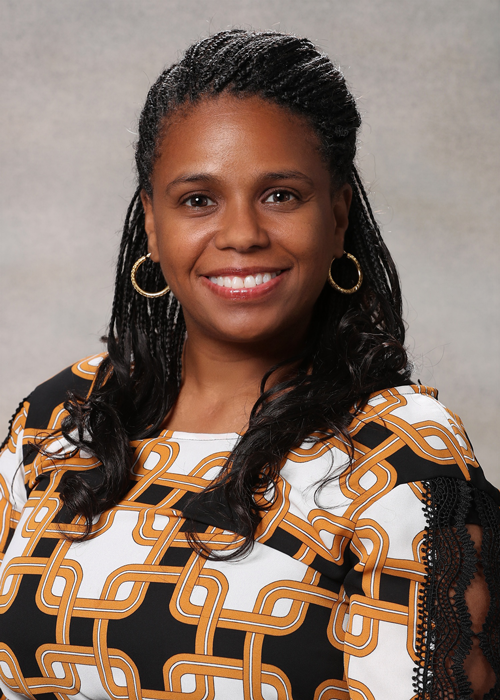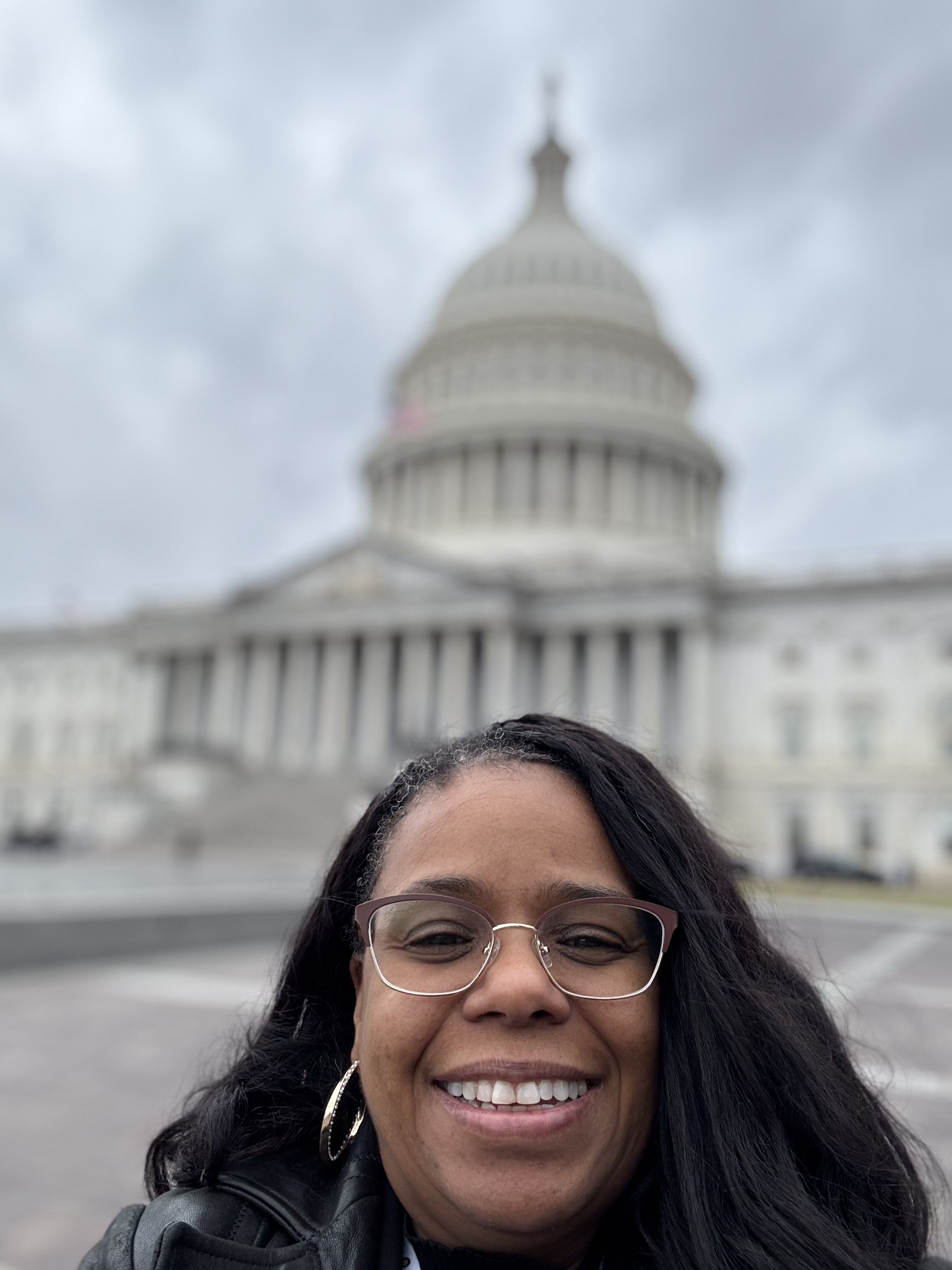Apr 10, 2025
College of Health Professions Brain Injury Survivor and Expert Leads the Field

Kelli Talley, Ph.D., has a story fit for Hollywood.
After a devastating car crash left her in a coma for more than two weeks, she woke to a world she didn’t recognize – and a life that had to be rebuilt from scratch. The traumatic brain injury derailed her college plans and ended her military aspirations. But it also sparked a purpose she’s followed ever since.
Today, Talley is a national voice in brain injury research and education. She’s a faculty member in the Department of Rehabilitation Counseling, founder of the Health Disparities and Traumatic Brain Injury Research Lab and a member of the governing board of the Brain Injury Association of America (BIAA).
And she’s just getting started.
“The brain injury changed my whole world,” she said. “It was so much on my family – my mother, my sister, my stepfather. I had to go back home and rebuild my life.”
“To this very day, I am still living with residual deficits from my brain injury. I’ve learned over the years how to work around it. I still have problems with abstract thinking, information processing and short-term memory,” Talley said.
Talley’s accident happened in 1990, just before her junior year at Florida A&M University where she was studying business and an ROTC member. After months in the hospital and a long recovery, she returned to school – this time majoring in occupational therapy.
“I had to be comfortable with failure,” she said. “But I didn’t give up. I just worked harder.”
Her journey took her through multiple degrees – first a bachelor’s, then two master’s and eventually a Ph.D. from VCU. She became a clinician, educator and researcher, drawing on her own experience to shape the field of brain injury rehabilitation and advocate for health equity.
A national voice for brain injury

This spring, Talley attended her first meeting as a governing BIAA board member. The date coincided with the group’s 2025 National Brain Injury Conference and Brain Injury Awareness Day on Capitol Hill, a multi-day event that attracted nearly 400 people.
“I was astounded. It was such an honor for me,” she said. “I’ve kind of worked my way up the ladder when it comes to being an advocate in brain injury.”
The event included workshops, networking sessions and legislative advocacy. On the final day, attendees traveled to Capitol Hill to speak with members of Congress and staff. The association’s legislative agenda focused on supporting the Congressional Brain Injury Task Force, urging lawmakers to back a national brain injury action plan and expanding services for people living with brain injury across the country.
Talley found sitting at the decision-making table with longtime leaders in the field – including mentors – a surreal experience. “It was wonderful to be on the same level as far as the decisions we’re making,” she said, “and the actions we’re trying to do to get brain injury more recognized in our communities.”
VCU and the national research frontier
Talley’s appointment also brings attention to VCU’s national role in brain injury research. The university is one of the four founding members of the Traumatic Brain Injury (TBI) Model Systems program, a federally funded network that today includes 16 research centers focused on care, data and long-term recovery.
“I want to bring awareness to VCU and the College of Health Professions,” she said. “VCU has a strong brain injury research stronghold with the TBI Model Systems. I’m part of that, and I’m also a child of the TBI Model Systems. I trained with them when I was working on my Ph.D.”
Program researchers have contributed to a national database to improve evidence-based care, with information collected from thousands of individuals over decades. Talley now disseminates research as part of the VCU team and is involved in community-based studies that examine long-term outcomes and disparities in care.
She also plays an active role in VCU’s Center for Rehabilitation Science and Engineering (CERSE), which leads research and innovation across multiple institutions, departments and partners. CERSE’s work spans a range of conditions – from traumatic brain injury and spinal cord injury to Parkinson’s disease and developmental disabilities – with a focus on helping individuals regain mobility, manage chronic symptoms and thrive in their communities.
At the College of Health Professions, Talley draws on her personal journey to teach about brain injury, disability and health equity, which coincides with her leadership of the Health Disparities and Traumatic Brain Injury Research Lab. The lab focuses on understanding and addressing the unique challenges faced by minoritized individuals with traumatic brain injury.
“I’ve been able to do the things that I truly love,” she said. “I love teaching about traumatic brain injury, bringing in my own lived experience with factual information.”
She also helped create a health equity graduate certificate program in the Department of Health Administration that includes courses in health equity, reducing health disparities, policy and a hands-on community capstone. She is now the lead faculty in that program.
Talley credits Rehabilitation Counseling for embracing her perspective and giving her the freedom to shape curriculum that draws from both lived experience and evidence-based practice. Alongside her teaching, she has authored or co-authored more than 40 peer-reviewed journal articles and five book chapters, with much of her work focused on racial and ethnic minorities and caregivers affected by traumatic brain injury and other disabilities.
“The way they’ve allowed me to come into their department and bring in my perspective about disability has been amazing,” she said. “I’m so, so very grateful for that.”
A voice for change and resilience
Talley’s approach to life, research and teaching is built on decades of adapting to a “new normal.”
“You have to accept change. You have to be flexible,” she said. “You have to have patience, perseverance and tenacity. It might be extremely hard. You might have to study longer or read longer or whatever it is for things to process. But that doesn’t mean that you should give up.”
Her message to students and survivors is clear: challenges are real – but so is the path forward.
“You can make a new life for yourself – have what we call a new normality,” she said. “Seek out information and create a new you.”